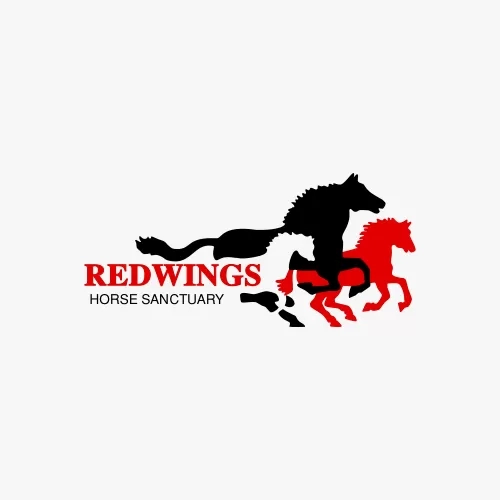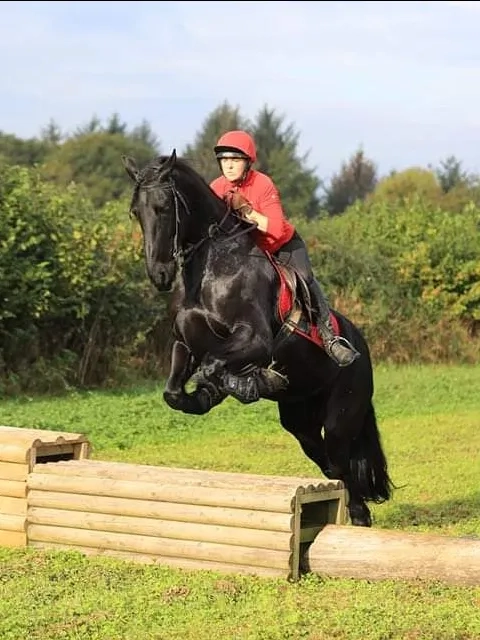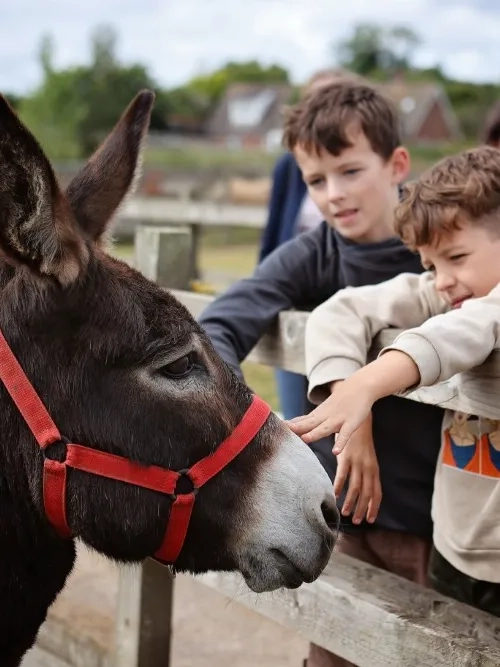06 November 2020

This month we’ve put forward some questions from our supporters and our own equine care staff to our two Senior Field Officers, Julie and Jo.
Julie and Jo cover most of East Anglia between them, investigating welfare concerns and assisting with rescues. Combined they have worked in horse welfare for almost 50 years!
Which has been the case that most sticks in your mind?
Julie: For me it would have to be the Rainbow Meadows case in 2015. That case was a perfect example of the routes we take to improve equine welfare, and what happens when owners can’t or don’t take our advice. Redwings, along with the RSPCA, made multiple attempts to improve the welfare of the animals in their home, giving the owner every opportunity to take proper care of them. However, it became clear that the steps weren’t being taken, and we had to escalate our actions which ultimately meant seizing the animals. What topped it off was the successful prosecution of the owners, and seeing how the horses we rescued have gone on to live peaceful and comfortable lives, including two who have been successfully rehomed!
Jo: One of the most memorable cases I can think of is quite recent, with Boris who we took in last February. I’m somewhat used to dealing with cases of skinny horses and ponies, but in Boris’ case it was particularly harrowing. Knowing that the stick had been in his mouth for a while, making him unable to eat or drink, in agony and losing weight at such a rate was heart-breaking.

How do you look after yourself given all the things you see?
Jo: Communication in our team is very important. When we’ve had a tough case, or we just need to let off a bit of steam about something, it’s a lifesaver knowing you’ve got someone there you can talk to, who can share the burden. When I’ve got the time, I also like to take a walk around the farm and see all our residents living their lives in peace and comfort. It reminds me why I do what I do, and that my work has such a positive impact on so many ponies.
Julie: At the end of the day, the welfare of the equine is the most important thing, and while some sights can be really horrible, it’s important to try and keep a level head to make critical decisions. Being a field officer is a busy job, often with long hours or emergency trips out at all hours of the night, so the down time we get is very precious, and I make the most of it when I can. We’re still human and we need some time away, and taking that time to relax and unwind helps me to come back feeling refreshed and ready to get on with the job.
Can you remember your first cases?
Julie: I started in Welfare in 2002, and the first big thing I can remember is working on the round up of 43 Shetland ponies in Devon. It’s interesting to reminisce about old rescue cases to see just how far we’ve come in terms of how we operate when we’re doing a rescue. Nowadays we use 6ft by 6ft metal pen sections which are easy to handle, and a safe and organised way to round up horses and ponies, particularly if they’re very unhandled. With the Devon 43, we just had to use whatever we had to hand – if I remember correctly, sheep hurdles and picnic benches were used that day!

Jo: I’ve been working in equine welfare for 30 years this December; I started working at Ada Cole Memorial Stables before our merger in 2005 and carried on my role when we joined Redwings. I’ve had a good think about my first case, but considering the thousands of horses I’ve dealt with since 1990, it’s hard to say which one would be my first! Some of my earliest cases involved ponies which are still with us, like Dolly, Murphy and Amadeus at Redwings Ada Cole.
Do you ever get compassion fatigue, or jaded with people?
Jo: Me and Julie have seen so much over our time working in this industry that nothing shocks us anymore. Of course, bad situations can be emotionally hard to deal with, but that’s where our training kicks in. We have to put our feelings to one side and deal with what’s in front of us.
I also try to remember that I don’t have the ability to know another person’s situation; there are all sorts of reasons horses end up in bad condition, and it’s not always through maliciousness or a will to see an animal suffering abuse or neglect. I live by my own standards, and I work to those standards, and getting the horse the help it needs is more important than my personal feelings towards the person responsible.
Julie: It can be emotionally difficult dealing with certain situations sometimes, but over the years I’ve learned to put how I feel to one side and get on with the job at hand. It’s important to stay calm and professional – there’s no point getting angry with someone, it’s not going to achieve anything.
What’s your favourite snack on the road?
Julie: Usually coffee, and my colleagues in the office have a tuck shop stocked up with snacks for whenever I get back into the office.
Jo: I always have an apple with me. I like to share it when I’m out and about, or with some of my four-legged friends at Ada Cole who I know will appreciate it!
Anyone who has a concern about the welfare of a horse or donkey is welcome to call our Welfare team on 01508 481000 or email welfare@redwings.co.uk for advice.

Redwings Press Office
Find out more about Redwings Press Office



